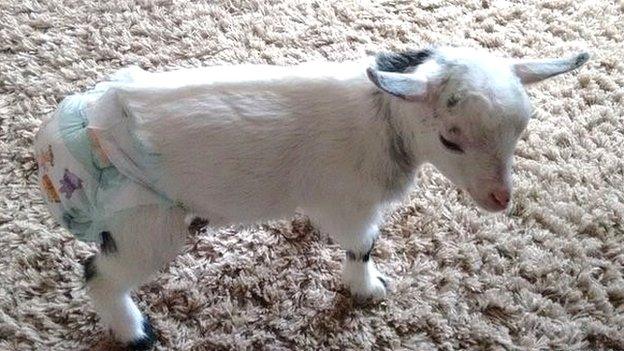Dwarf goat born in UK for first time thanks to IVF
- Published
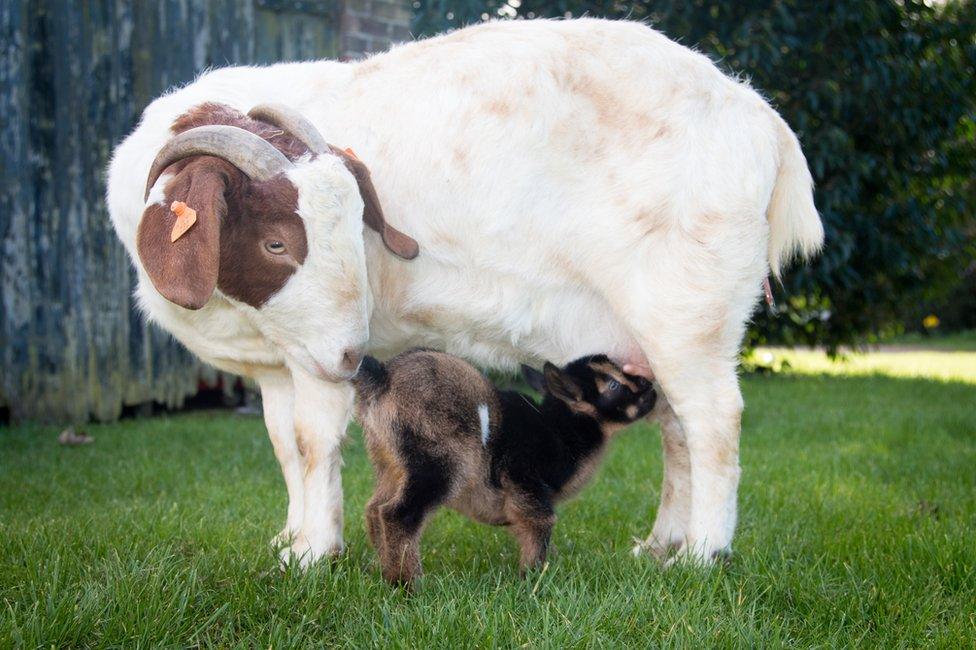
Myrtle is a Boer goat, while her son is a Nigerian Dwarf goat
A Nigerian Dwarf goat - the world's smallest dairy breed - has been born in the UK for the first time after his frozen embryo was brought from the US.
The embryo was implanted in a surrogate mother called Myrtle, who is a different breed of goat but is apparently "besotted" with her son.
Windmill Farm Park in Leicestershire wanted to introduce the Nigerian Dwarf breed of goat to the UK.
Importing a live goat would have been illegal, so they opted for IVF.
'Fantastic mum'
A total of nine embryos were implanted in six female Boer goats, but only one was successful.
The farmers thought they would need to bottle feed the baby, but Myrtle took to him immediately.
"When we lifted him out his mother went crazy; she was so upset at being separated," said Stacey Briggs, who runs the farm with her husband Steven.
"She's a fantastic mum. Although she looks a bit silly because she's a big white goat and he's a tiny little black and brown goat."
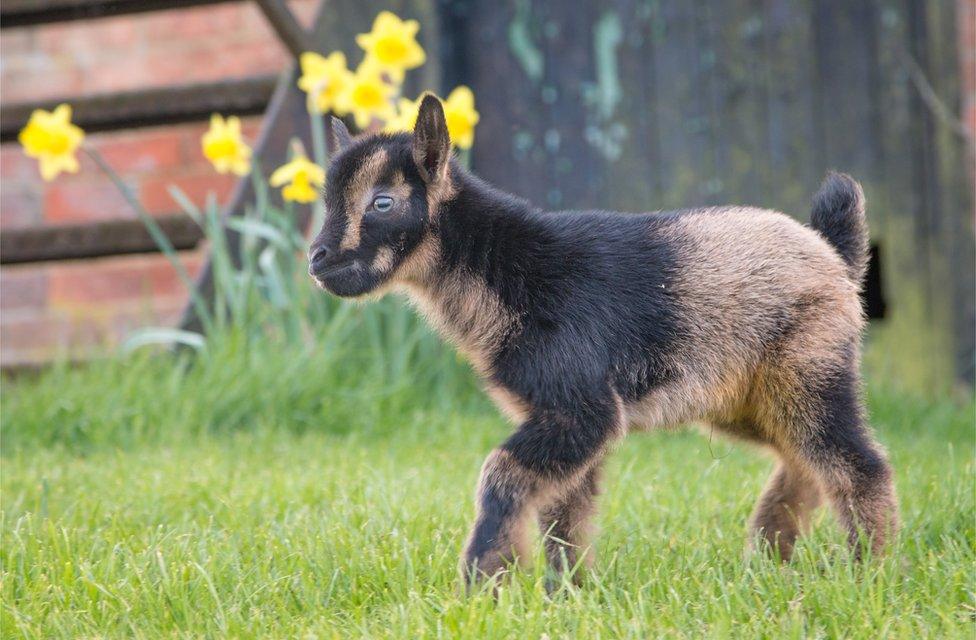
The unnamed baby goat is currently only 22cm (8.7 inches) tall
The goat, who has not been named yet, was born on 14 March at the farm park in Kibworth Harcourt.
He is currently 22cm (8.7 inches) tall, and is expected to grow to no more than 60cm (23.6 inches).
The process cost tens of thousands of pounds, and the farmers decided to forego a large wedding so they could pay for it.
Mrs Briggs said she "fell in love with the breed" when she became aware of them several years ago.
"There have never been pure Nigerian Dwarfs in the UK before," said Mrs Briggs.
"The animals they originated from - West African Dwarf goats - were here, but the breed Nigerian Dwarf was developed in the USA."
Frozen embryos were also imported to Australia in 2014.
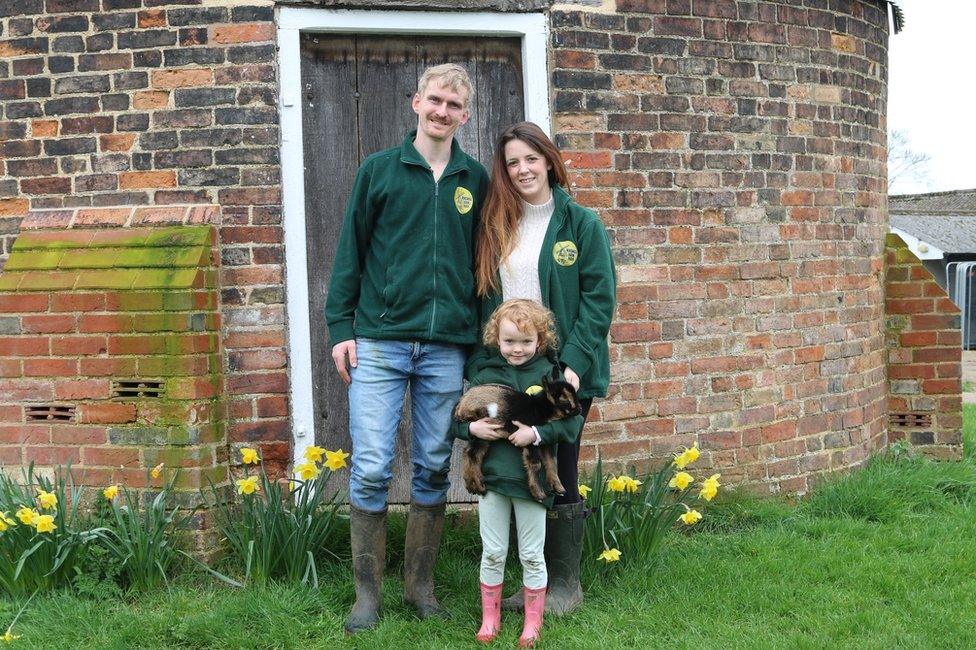
The couple decided to forego a large wedding to pay for the goat, which cost tens of thousands of pounds
Mrs Briggs said the breed is known for the quality of its milk, which is richer in buttermilk than larger breeds, and they can also produce a substantial amount for their size.
While the farm's goat will not produce milk, because he is male, his semen will be used to breed with other dairy goats.
"When importing embryos or live animals is cost prohibitive or impossible it can help to increase genetic diversity," Mrs Briggs explained.
"We will look at the UK small goat population and find and select the ones with closest characteristics to Nigerian Dwarf goats.
"We will then breed them using artificial insemination to increase the Nigerian Dwarf percentage until it is over 93%."
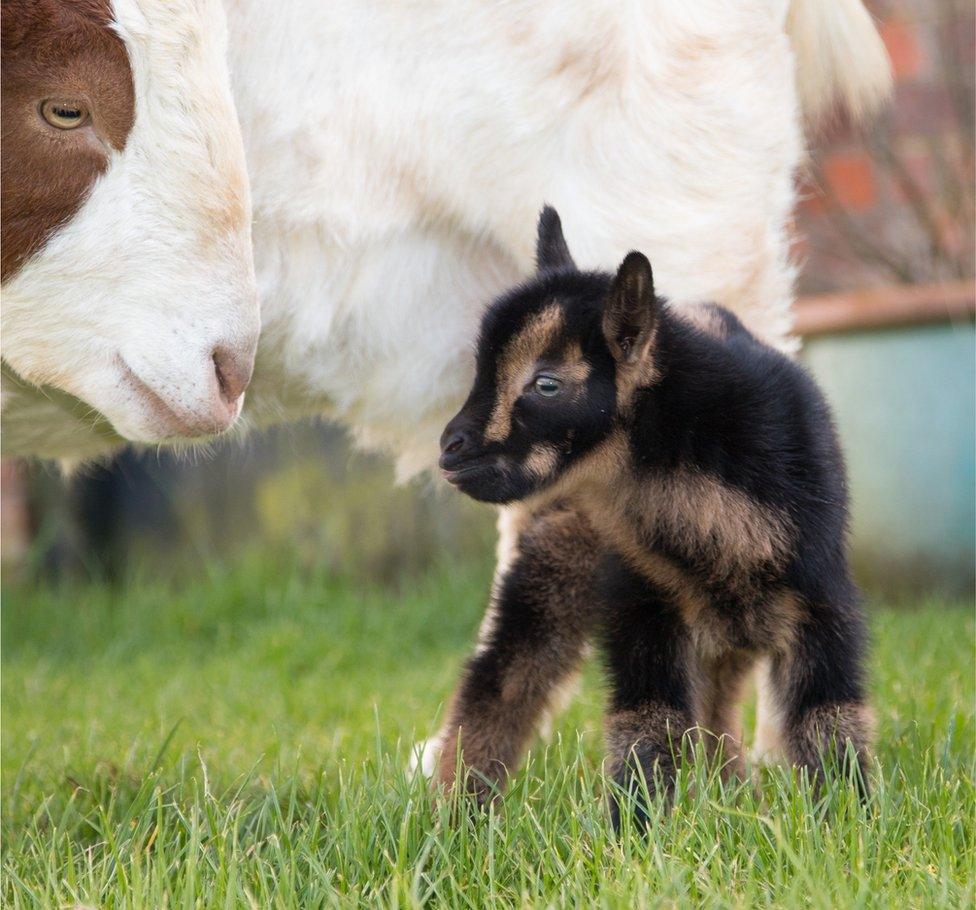
The unnamed baby goat will be moved to public areas of the farm park when he is older
Mrs Briggs said the IVF process had been "a rollercoaster of emotions".
The frozen embryos started their journey from the US on 10 July, following more than 18 months of planning and paperwork.
They cleared UK customs on 4 August, then were held in a UK storage centre until 25 October, when the embryos were implanted into the female goats.
When the baby goat is older he will be moved to public areas of the farm park so visitors can see him.

Follow BBC East Midlands on Facebook, external, on X, external, or on Instagram, external. Send your story ideas to eastmidsnews@bbc.co.uk, external or via WhatsApp, external on 0808 100 2210.
Related topics
- Published27 March 2022
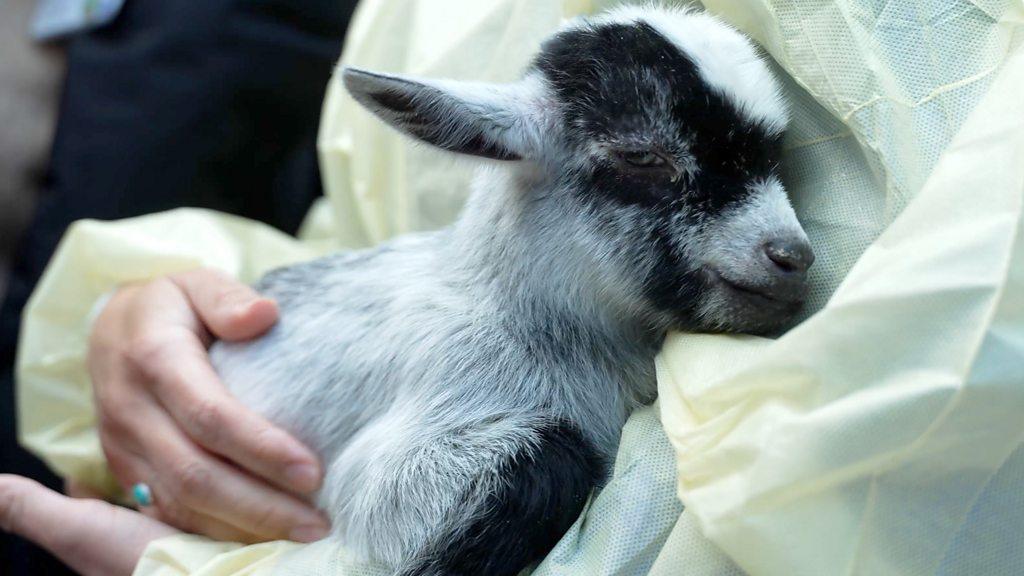
- Published10 April 2018
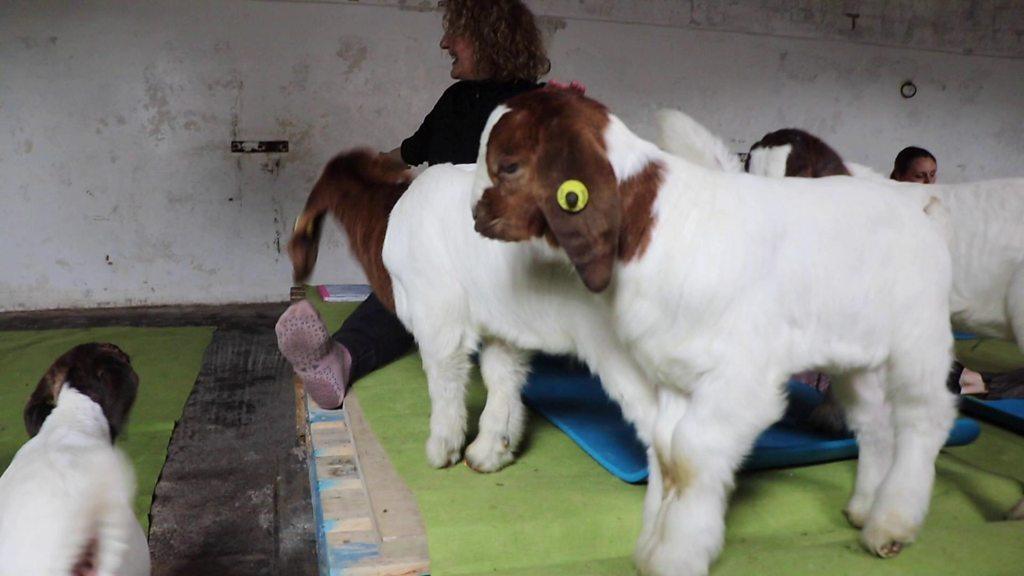
- Published20 February 2015
